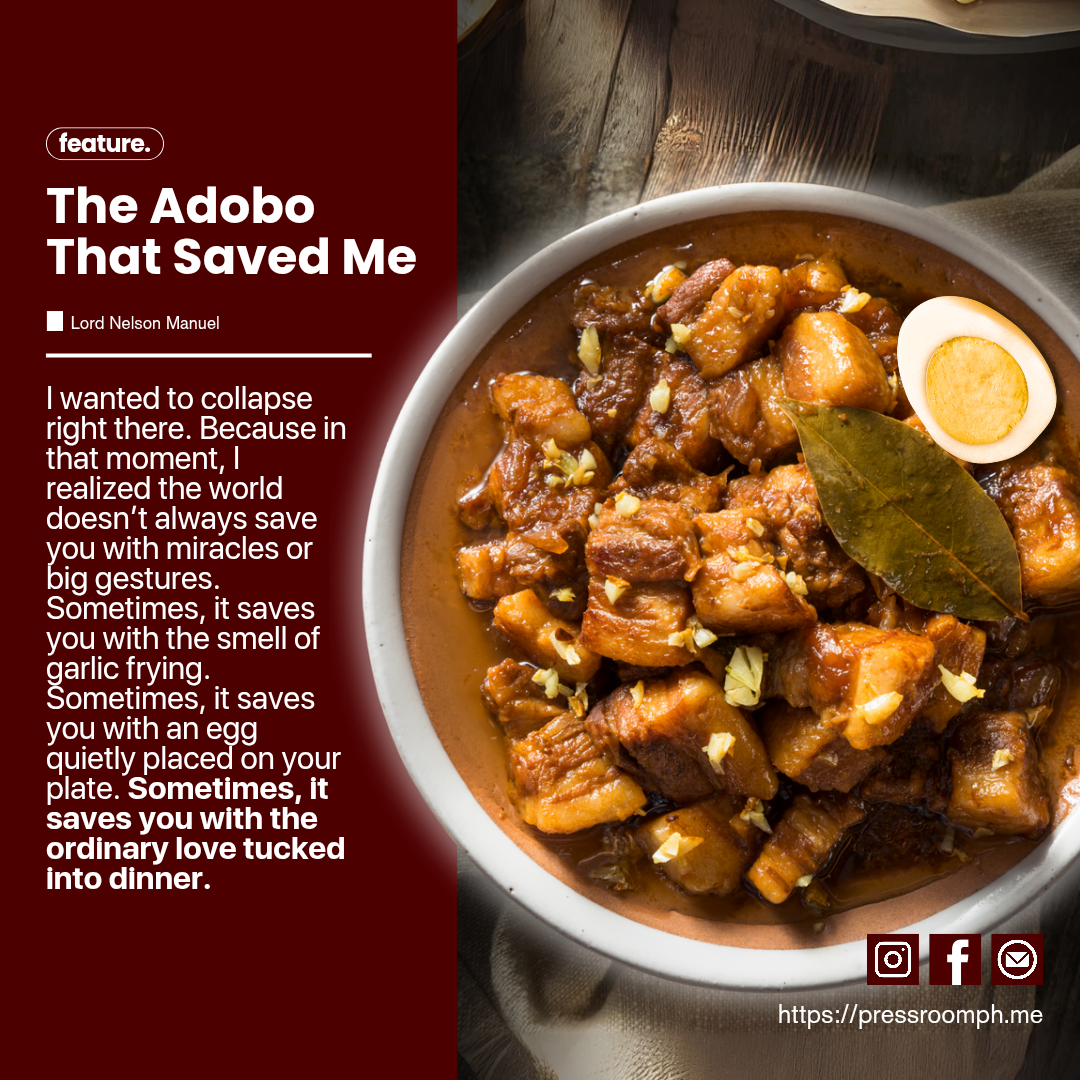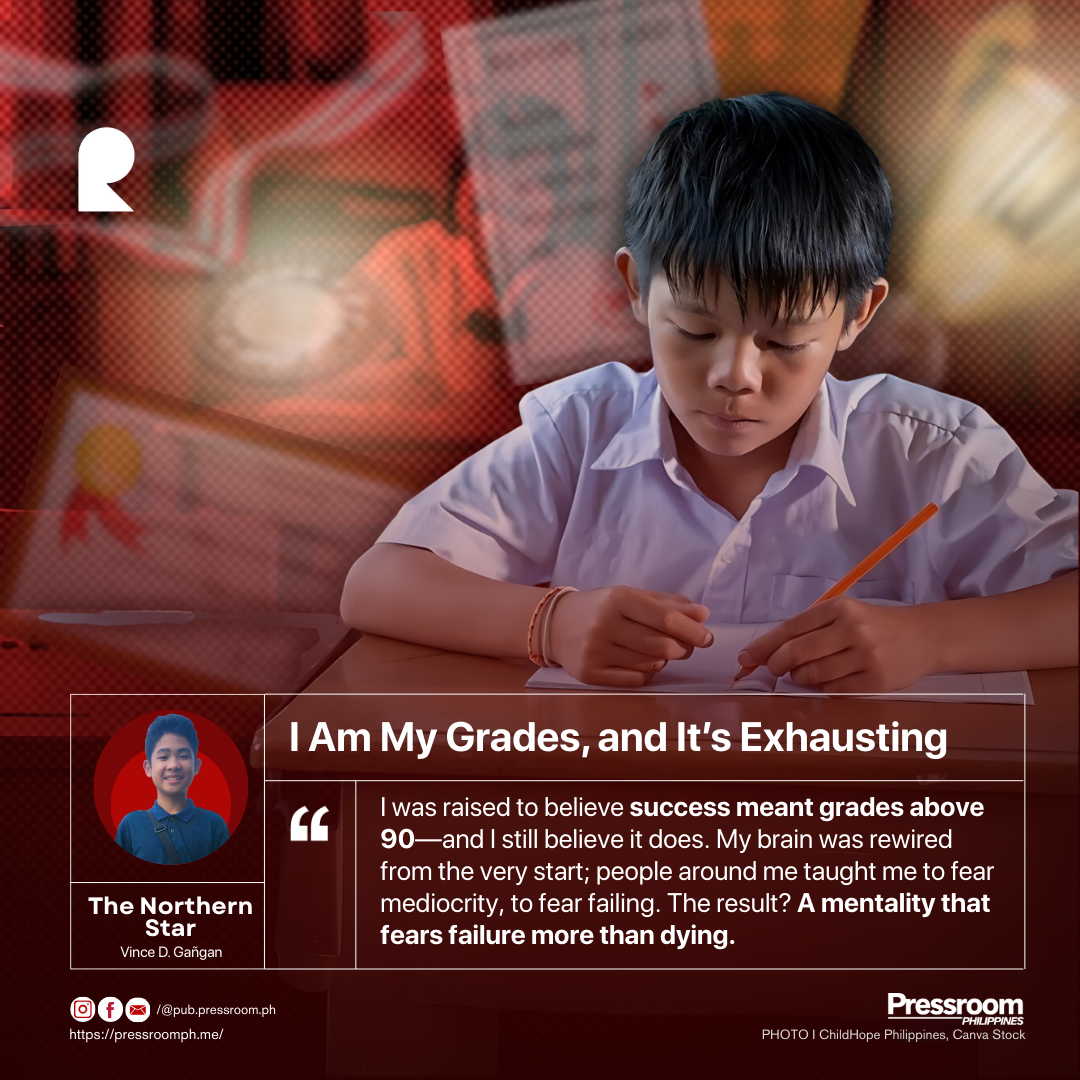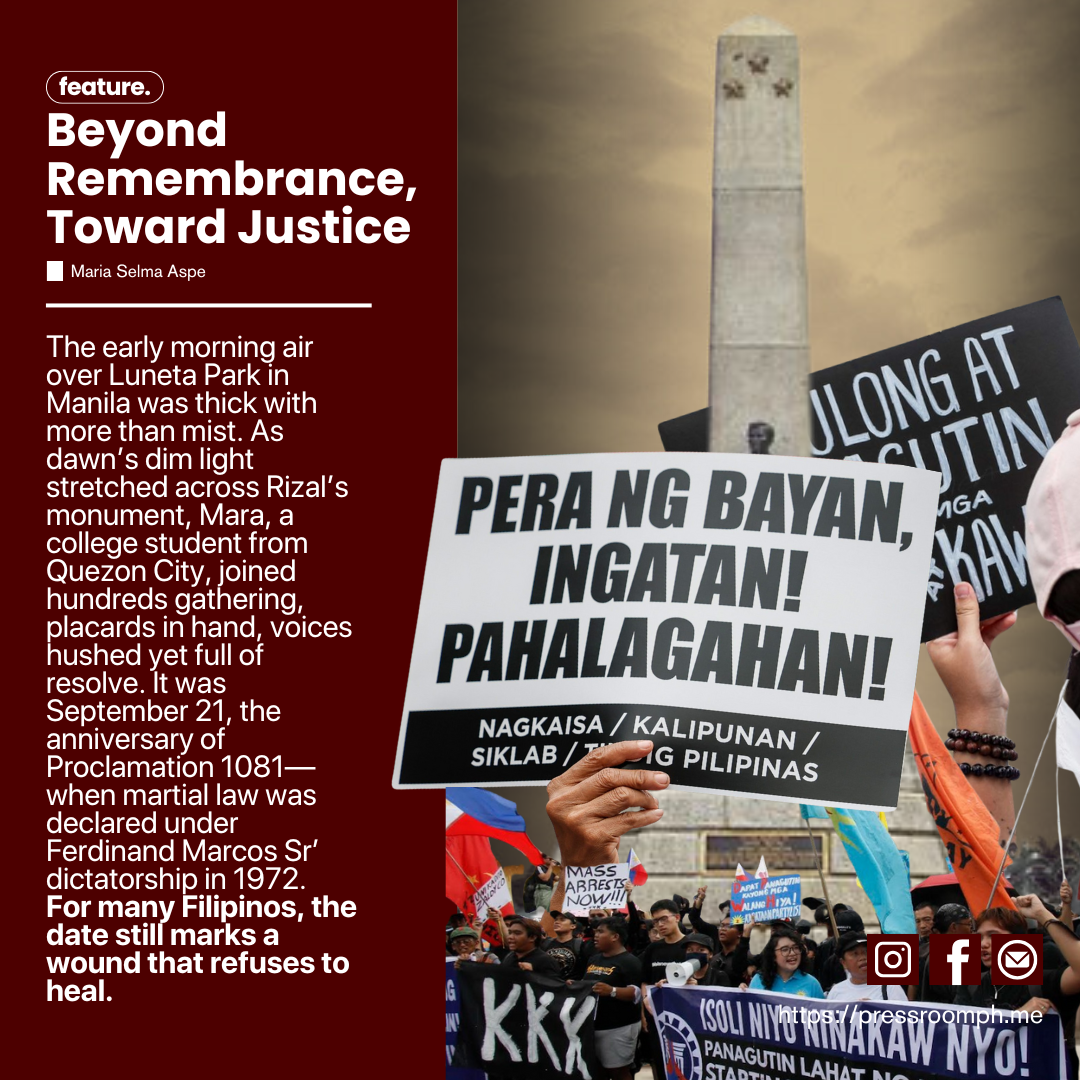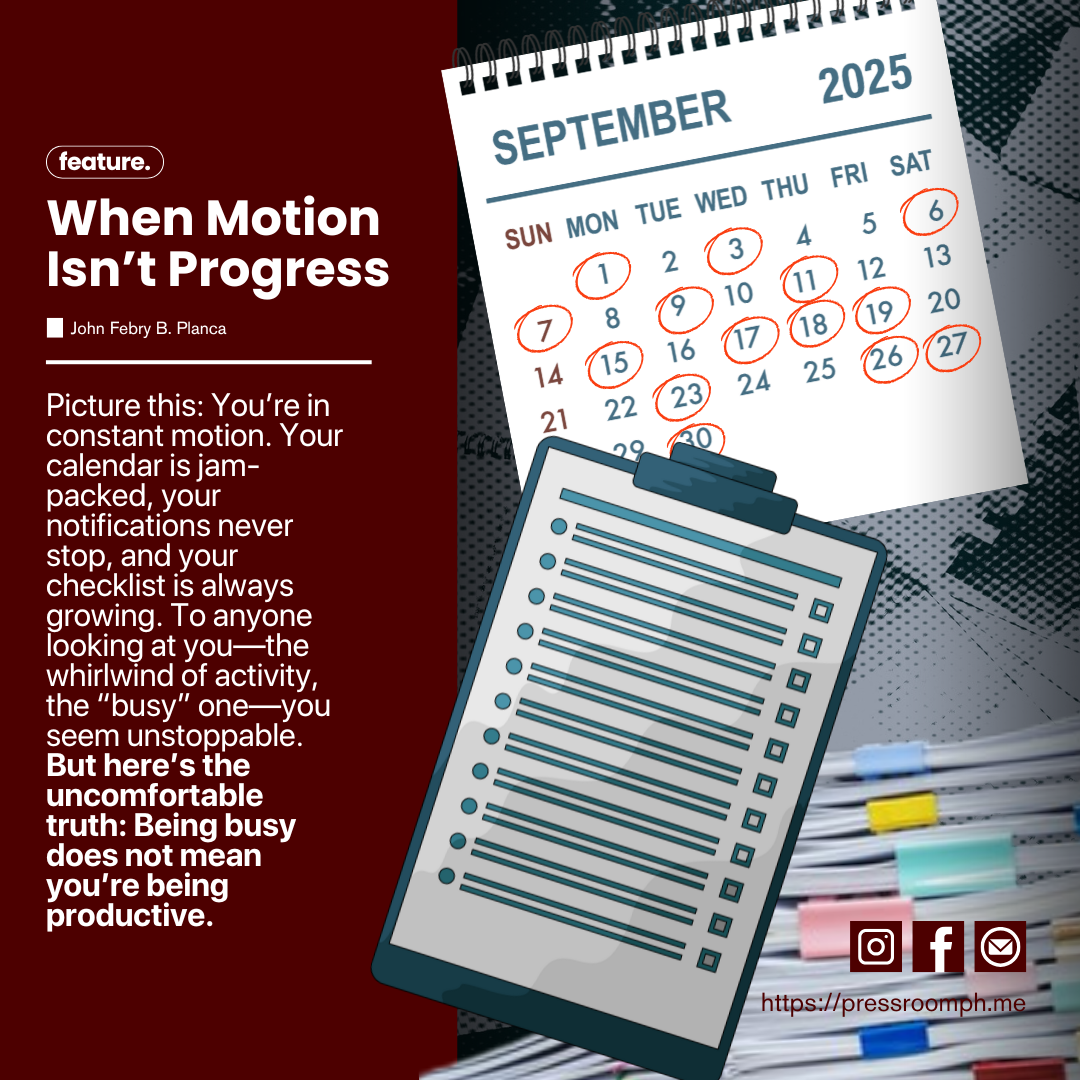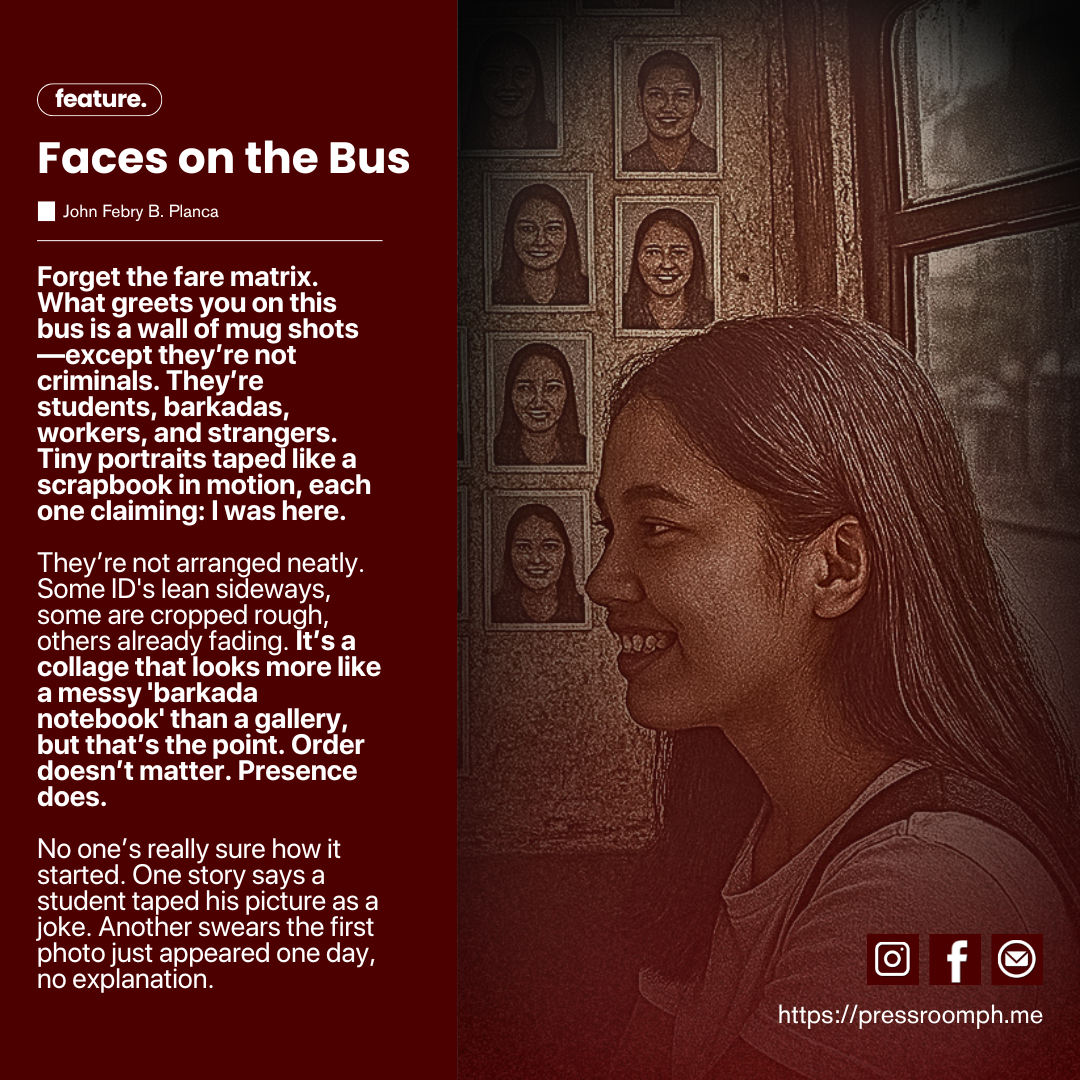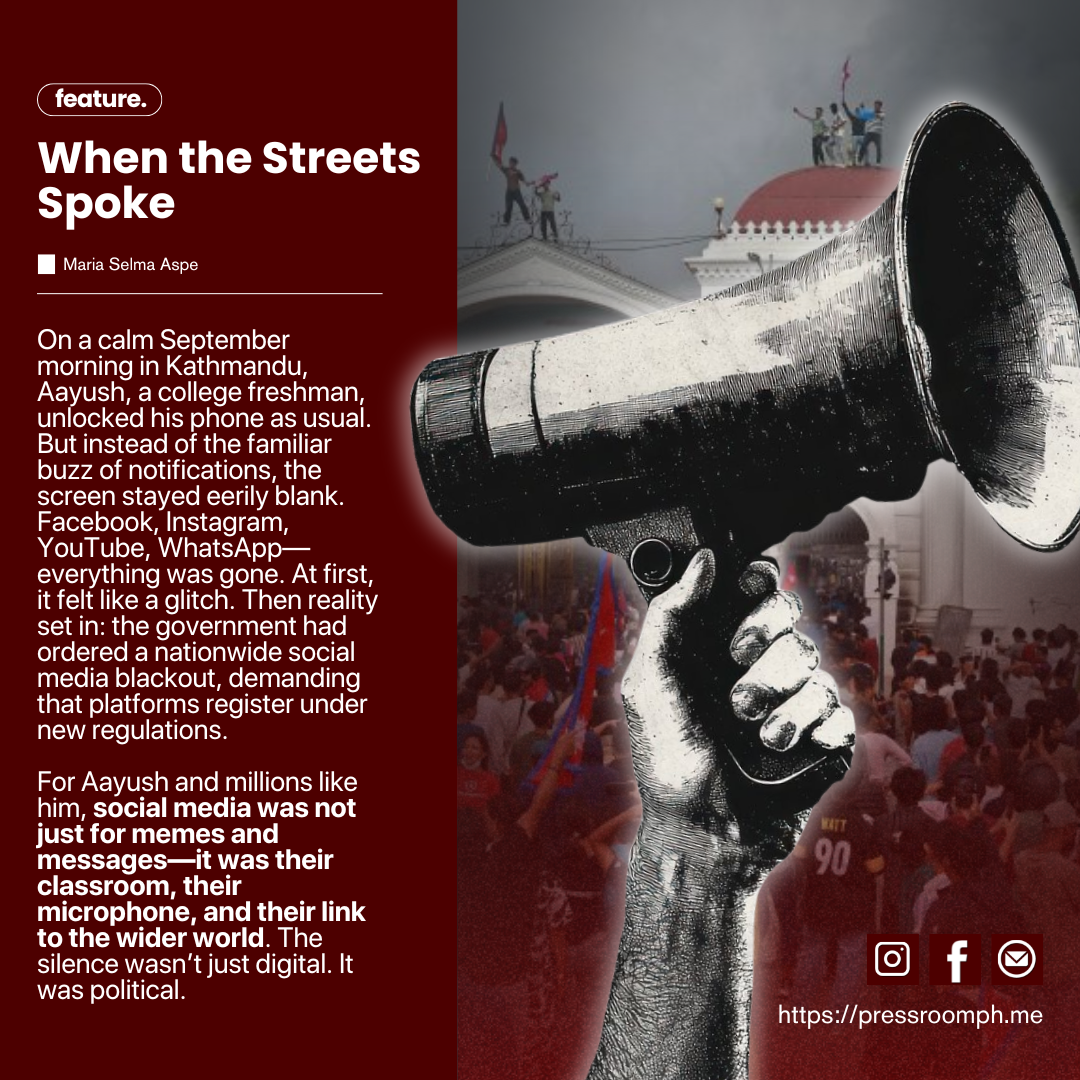They say most people don’t notice when someone is breaking. And maybe they didn’t notice me. I smiled in class, joked with friends, and answered when called. On the outside, I was another student carrying a bag of books. But inside, I carried a bag far heavier—one filled with thoughts sharp enough to cut me from the inside out.
September made it worse. The rain seemed endless, the air heavy. Everything felt like it was sinking, including me. Every night, as I lay in bed, I asked myself the same question: what if I just stopped? What if tomorrow never came for me? Would the world even flinch?
I imagined the answers. Inang would cry, maybe collapse over the bed I left behind. Tatang would go quiet, his silence heavier than any scolding. My sister would keep asking why—why I never said anything, why I left when I could’ve stayed. And yet, my thoughts murmured: they’ll heal. People always heal. Maybe my absence would eventually feel like relief.
One night, walking home through streets slick with rain, I felt that thought hardened into a decision. I told myself, maybe tonight is the night I vanish. The streetlamps looked weird above me and buzzed faintly, and I wondered if anyone would notice if I didn’t walk beneath them again.
And then it happened. The smell. It reached me before I even entered the house: vinegar simmering, garlic browning in oil, soy sauce rich and sharp, wrapping itself around the night like a hand pulling me back. Adobo. My favorite. With a hard-boiled egg.
I froze at the doorway. My legs locked in place, heavy not from despair this time but from the sudden rush of memory. All at once, I was ten years old again, running inside after school, shouting because I smelled that same familiar dish. I was thirteen, sulking from a bad grade until Inang placed a plate in front of me and told me to eat first, then cry later. I was fifteen, listening to my sister complain about homework while slipping the boiled egg from her plate onto mine because she knew I loved it most.
And here I was now—eighteen, tired, broken, ready to leave everything behind—yet greeted once more by the same dish.
Inside, Inang throb as she stirred the pot, her hands moving with the latent tempo of years. Tatang set the table, adjusting each plate the way he always did, his calloused fingers careful not to scratch the surface. My sister sat peeling eggs, slipping one onto my plate before I even sat down.
“Anak, kumain ka na,” (Anakko, manganin) Inang called, her voice secured, unaware of the storm I carried inside me.
I wanted to collapse right there. Because in that moment, I realized the world doesn’t always save you with miracles or big gestures. Sometimes, it saves you with the smell of garlic frying. Sometimes, it saves you with an egg quietly placed on your plate. Sometimes, it saves you with the ordinary love tucked into dinner.
I sat down. I lifted the spoon. The first bite of rice and adobo burned my tongue, grounding me, reminding me: you are still here. The egg yolk crumbled softly in my mouth, familiar, firm, like a memory too stubborn to disappear. I ate and cried at the same time. No one asked me why. Maybe they didn’t notice. Or maybe they knew better than to ask.
And then a thought struck me like lightning: if I had gone through with it, this table would have been missing one plate. The boiled egg would have sat untouched. My chair would have stayed empty. And the food that was supposed to be mine would taste of grief instead of garlic. That ordinary dinner would have turned into a scar none of them could ever heal.
That night, I stayed. Not because the darkness vanished—it didn’t. Not because I was suddenly cured—I wasn’t. I stayed because of adobo. Because of garlic and vinegar and soy and the simple truth that love can hide in the smell of food, in the warmth of rice, in the care of family who may never know how close they came to losing me.
September is Suicide Prevention Month. For some, it’s about campaigns, posters, and statistics. For me, it’s about that night. The night I realized survival sometimes looks like eating one more meal, taking one more bite, choosing to sit at the table one more time.
I won’t lie and say everything is better now. Healing is not a straight line—it’s jagged, messy, like rice sometimes undercooked or eggs cracked too early. But I know this: sometimes hope doesn’t arrive in grand speeches. Sometimes, it tastes like adobo with hard-boiled egg.
If you’ve ever felt like leaving, I hope you find your reason to stay. Maybe it’s a meal. Maybe it’s a laugh. Maybe it’s the quiet truth that someone is waiting for you, saving you a seat, loving you without you even noticing.
That night, adobo saved me. And tomorrow, something else might. But for now—I’m still here. And my chair at the table is not empty.
